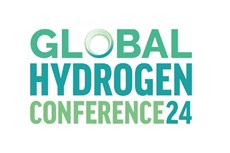Honeywell introduces technology for new class of SAF
Published by Bella Weetch,
Editorial Assistant
Hydrocarbon Engineering,
Honeywell has announced its innovative, new UOP eFiningTM technology, a ready-now solution for producing low-carbon sustainable aviation fuel (SAF). HIF Global, an e-fuels company, intends to deploy the new technology to produce e-SAF at its second US e-fuels facility.
e-fuels, also known as electrofuels, are a class of synthetic fuels that can replace conventionally produced fossil fuels. e-fuels combine green hydrogen (i.e. hydrogen produced in electrolysers from renewable energy and water) and carbon dioxide (CO2) to produce e-methanol, which can then be converted to a wide range of sustainable fuels, including e-SAF, e-gasoline, and e-diesel.
Honeywell’s UOP eFining is a methanol-to-jet fuel (MTJ) processing technology that can convert e-methanol to e-SAF reliably and at scale. The technology is efficient, resulting in high-yield e-SAF production at a lower cost relative to comparable technologies. Honeywell UOP eFining can reduce greenhouse gas (GHG) emissions by 88% compared to conventional jet fuel. When blended with conventional jet fuel, e-SAF is a drop-in replacement fuel that requires no changes to aircraft technology or fuel infrastructure.
“As a leader in renewable fuel technology, Honeywell recognises that creating technologies that use new feedstocks is vital to long-term decarbonisation of the aviation sector,” said Lucian Boldea, President and CEO of Honeywell Performance Materials and Technologies. “The ability to use readily abundant CO2 to produce SAF is a transformational opportunity for this market. Adding UOP eFining to our existing Ecofining and ethanol-to-jet technologies, Honeywell now offers multiple routes to market to meet the rapidly growing demand for renewable fuels including SAF.”
“United strongly supports the development of new technologies that can help bring additional quantities of SAF to market,” said United Airlines Ventures President Michael Leskinen. “Using green hydrogen and CO2 to produce e-SAF has the potential to dramatically increase the volume of SAF required to enable the aviation industry to reach its decarbonisation goals in a timelier manner. United is proud to be the first airline to use SAF in regular operations and increasing our SAF consumption is essential to meeting our commitment to reach net zero carbon emissions by 2050, without relying on traditional carbon offsets.”
HIF Global is the first customer to sign a commercial agreement for the production of e-SAF using Honeywell UOP eFining. HIF expects to deploy the solution at its second commercial-scale e-fuels facility in the US. The HIF e-SAF project is expected to be one of the world’s largest e-SAF facilities, recycling approximately 2 million t of captured CO2 to produce approximately 11 000 bpd of e-SAF by 2030.
Renato Pereira, CEO of HIF USA, added: “Honeywell and HIF Global together will transform recycled CO2 into a useful feedstock to replace fossil fuels in the very hard-to-abate aviation sector. At HIF Global, we view Honeywell’s UOP eFining technology as the new frontier in SAFs and we look forward to deploying it to decarbonise over 12 billion air passenger miles per year.”
Demand for SAF continues to grow. In 2021, the Biden Administration announced its Sustainable Aviation Fuel Grand Challenge for the US aviation fuel supply sector to produce at least 3 billion gal. of SAF per year by 2030, and reduce emissions from aviation by 20%, with an eventual goal of meeting 100% of US aviation fuel demand with SAF by 2050. The European Council released its ReFuelEU Aviation rules as part of the ‘Fit for 55’ package, which aims to increase the share of sustainable fuels at EU airports from a minimum of 2% in 2025 to 70% by 2050, with an additional subtarget for e-SAF of 1.2% by 2030 and 35% in 2050. These and other incentives, including the Inflation Reduction Act, are intended to accelerate commercialisation of technologies such as Honeywell UOP eFining to help meet the growing demand for SAF.
Honeywell’s UOP eFining technology offers a highly-integrated design that can process flexible feedstocks using commercially-proven processes, resulting in operational reliability, minimised CAPEX, and low energy intensity. Honeywell’s eFining is the latest technology in a line of offerings that are driving the decarbonisation of the aviation sector. The company offers multiple routes to market using a variety of feedstocks, including Ecofining technology which uses fats, oils and greases and the recently launched ethanol-to-jet technology.
Read the article online at: https://www.hydrocarbonengineering.com/clean-fuels/11052023/honeywell-introduces-technology-for-new-class-of-saf/
You might also like
Viridi Energy signs 20-year agreement with Énergir
Viridi Energy, a renewable natural gas (RNG) platform, has signed a 20-year offtake agreement with Énergir, L.P.


